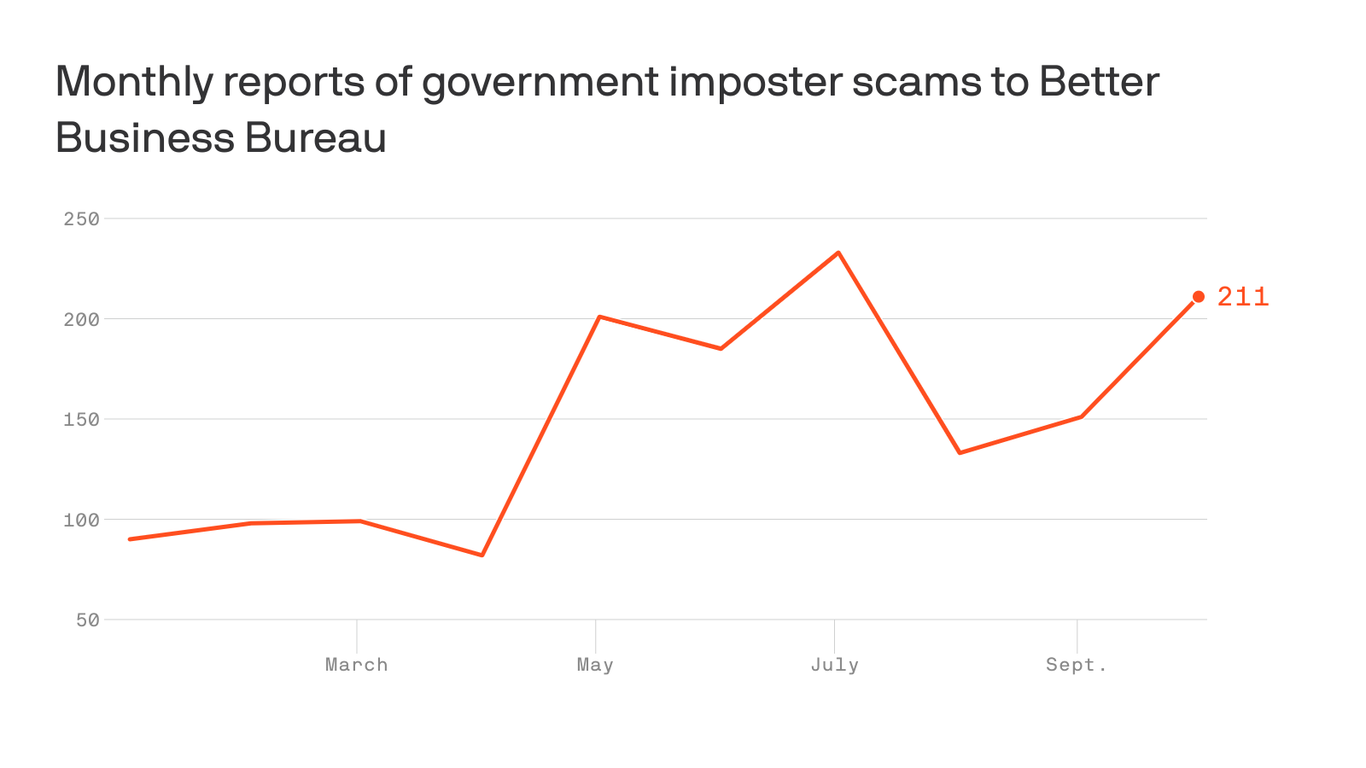
"By the numbers: The Better Business Bureau received 211 total complaints about scammers impersonating government agencies in October, according to the bureau's Scam Tracker database. That's up from the 151 total government imposter complaints the agency got in September, and 133 reported in August. In July, the organization received 233 reports of government scams. So far, the Better Business Bureau has seen a 40-50% increase in overall scam reports this year, spokesperson Melanie McGoven told Axios."
"Zoom in: Complaints to the organization varied from scammers impersonating passport renewal services to others claiming to be offering government-backed loans. One person in Washington state said a scammer "called to tell me my government-free grant for gas, rent and personal expense for 22,000 dollars was at risk if I didn't pay the 500 dollar refundable fee." Another person reported receiving a phone call about a "relief check" worth more than $5,000 that had been issued to them."
"Reality check: Only a fraction of scam victims submit reports to the Better Business Bureau. While most of the reports this month were unrelated to the government shutdown, scammers often take advantage during periods of confusion and high stress around government services. McGovern warned that many scams have become so sophisticated that their websites can end up at the top of search results - leading more people to click on them and assume they're legitimate."
Complaints about government-impersonation scams have risen notably, with 211 BBB reports in October versus 151 in September and 133 in August; July had 233 reports. The Better Business Bureau estimates a 40–50% increase in overall scam reports this year. Reported scams range from fake passport renewal services and phony government-backed loans to fraudulent relief checks and bogus grants that demand upfront fees. Only a fraction of victims report scams. Scammers frequently exploit periods of confusion and stress around government services and use sophisticated websites that can appear high in search results, increasing perceived legitimacy.
Read at Axios
Unable to calculate read time
Collection
[
|
...
]